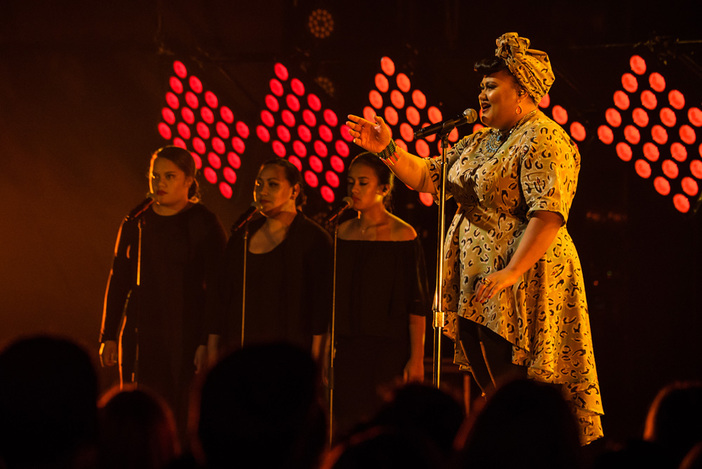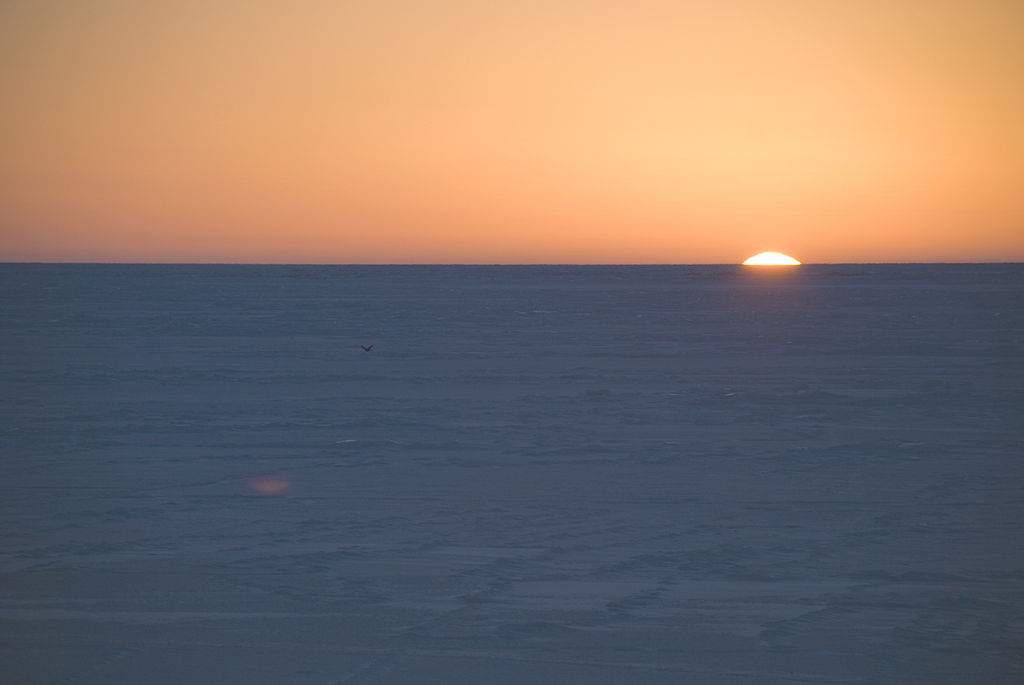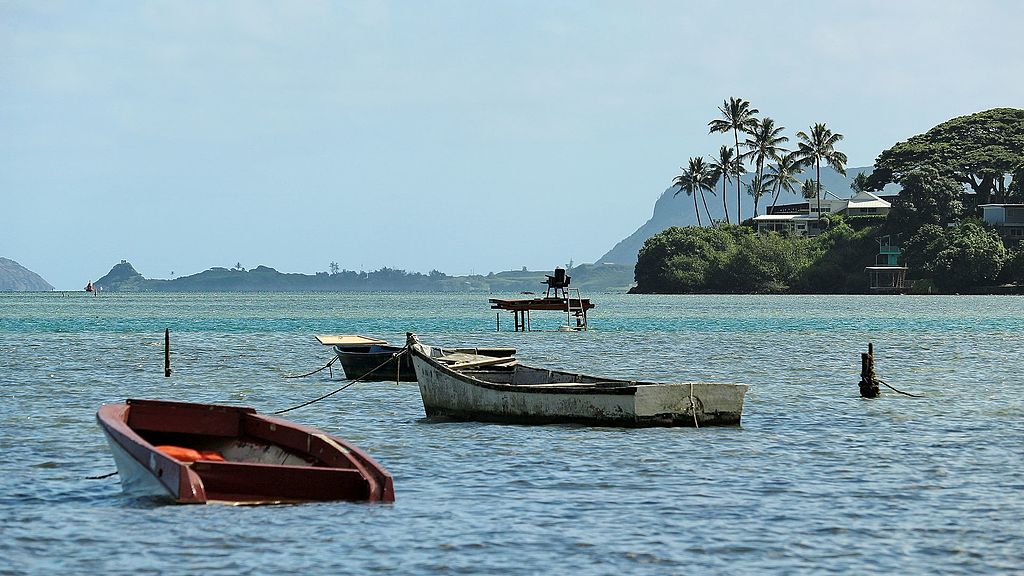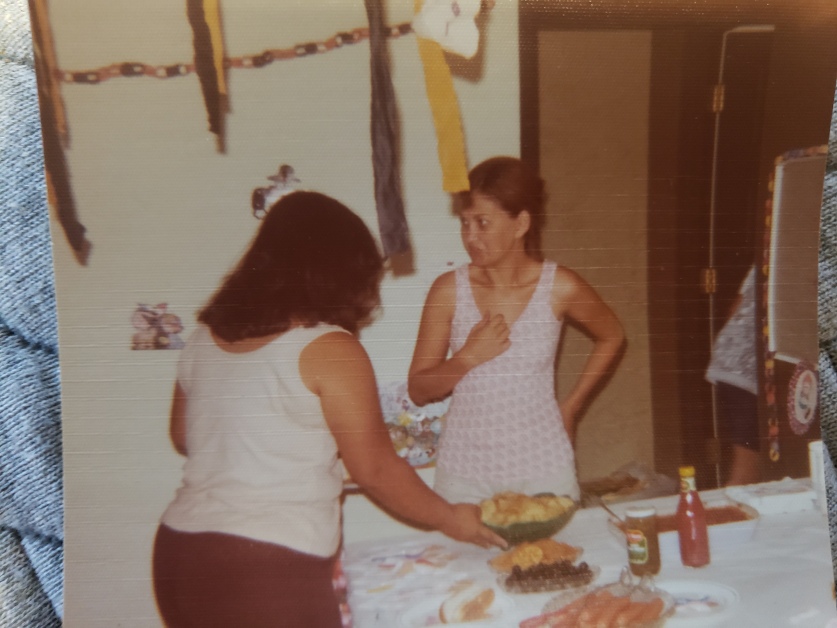I didn’t even know I could care about the X-Factor until I saw X-Factor New Zealand. And I didn’t know I could be both destroyed and healed anew by a single performance until I watched Nyssa Collins turn a song from the 1980s into a compelling Pacific Islander anthem. I watched slack-jawed, then cried my eyes out into a generations old ocean of colonization, loss, and the eventual reclamation of our deeply sacred Pacific Islander connections.
As a child I was plagued by nightmares, mostly of devastating natural disasters. Almost weekly I dreamed of being caught in the backseat of my parents’ car, watching a frothing wall of water crash over the climbing Koʻolau mountains to our left. This would have meant an unstoppable super tsunami had devastated the entire west coast of Oʻahu and drowned all of Honolulu, Aiea, Wahiawa. My dream was just a single moment of watching water cascading down over the mountain and knowing that my entire island had just been destroyed.
Those dreams started when I was about seven or eight and continue to this day. I dream of violent volcanic eruptions, earthquakes, enormous hurricanes, and military attacks. I dream of driving past Heeia State Park in a specialized aquatic vehicle because the entire area is flooded and has been flooded for years. Or so, that’s what the boat-bus driver has been telling me since I was in the second grade.
These dreams, the fears they instill, are why I, as an eighteen year old child, straight up ran away from home the first chance I got. They’re also why discussions about climate change, super storms, and rising sea levels are so visceral to me. I have a deep, personal interest in protecting the lands most impacted. These lands are my cradle of civilization.
So when a Samoan singer sings to me about dreams? I listen.
I’m not Samoan and don’t speak the language, but when Nyssa’s voice rose with the first words of her song, I got all the chicken skin my arms could muster. Bathed in a glorious yellow light like sunrise through the darkness and surrounded by two dozen dancers, Nyssa’s voice and graceful hands delivered a message this heartbroken woman was finally ready to hear.
After a verse of Samoan, Nyssa switched to English, the language of our colonizers and the tongue that is now common between us. I was keenly aware of this, regretting how careless I was in my youth when I walked away from the ʻŌlelo Hawaiʻi surrounding me. I watched Nyssa move soulfully between two languages, bridging the worlds between colonizer and colonized. But instead of feeling hyper-aware of my own loss of ancestral language, I felt included. I was welcomed into her message, her world. And that world is one of unflinching truth – some of it painful but most of it as resplendent as her performance.
She sang of catching a deluge in a paper cup and I recalled images of Pacific Islands drowning under the rising threat of climate change. She spoke of battles ahead, of battles lost, and I felt the stirring of rage that resides permanently behind my ribs. But it wasn’t stirred against the nations who have caused so much widespread devastation. Instead, I felt called in by her words, into the community of Islanders who know first hand the havoc wrought by the unchecked, unthinking industrialized world. Then something shifted and I realized what I was feeling wasn’t actually that decades-old rage. I was filled with hope in a way I’ve been too terrified to feel for years.
Imperialistic nations have built boundaries between us, dividing Samoa and separating Guam from her rightful place in the Marianas as if this is somehow no big deal. Borders imposed on Pacific Islanders instill a false sense of separateness that had families like mine aligning themselves with their colonizers rather than strengthening ages-old Pasifika connections.
We see that separateness in the prejudice that seethes in my beautiful Hawaiʻi, where Micronesians are just the latest to bear the brunt of American racism. This racism exists because the resources the United States government invests in her Pacific Islands are abysmally limited and many Islanders in the U.S. and her territories are under-served, at risk, and impoverished. Having to compete against one another for services from the U.S. while simultaneously being sold the myth of the just-work-harder American dream undermines the deep familial connections that have held Pacific Islander communities together for millennia.
As I child I heard the words “those people” roll off my Chamorro mother’s tongue, spoken about people who looked more like me than people I saw on tv. Those people were Hawaiian Sovereignty protesters, homeless Hawaiians in an A’ala Park tent city, Samoan immigrants not relinquishing their language the way hers was stripped as a child in a Catholic boarding school designed to create proper citizens out of Island girls. Those people were not aspiring to the American dream the way my parents were. The way they expected me to aspire.
I was raised in the belief of the American dream and had it fed to me from every direction. As an adult I internalized it and pushed so many other dreams aside. I believed so much in it that I didn’t realize the significance of using the word dream in that phrase in the first place.
But now I do.
I understand the dream of American exceptionalism, of finding a way to work within the system in an attempt to reap its many rewards. And I do know those rewards actually do exist. But it took me forty years to understand that the dreams were never crafted with my people in mind. They were crafted with us as a commodity, our homelands as possessions.
It worked, of course, the high-pressure salesmanship of the American dream. My parents lived it happily enough, even if it meant they had to minimize the parts of themselves that connected them to their roots. My mother refused to speak to us in Chamorro at all. My father never spoke ʻŌlelo Hawaiʻi even though he was raised with it even more than I was. As a result, I felt largely disconnected from my Pasifika ancestry while simultaneously out of place in the dominant U.S. culture I wanted so much to be part of.
I will never know if my parents felt the same kind of bottomless despair that I felt as a confused mixed-race child growing up in a commercialized tourist version of my grandmother’s ancestral homeland. I know they definitely had trigger points, subjects we absolutely could not talk about without drastic repercussions. I know they were terrified of their children being uneducated and starving to death in a society that prides itself on using poverty as punishment for not playing by the rules. And I know they were right to have these fears. All I have to do is look around and see how it is manufactured and sustained in this terrifying US election cycle. How I have the exact same fears for my children, even though I know this whole system of allowing people to starve is violent and inhumane.
But what I also know other things; was taught other lessons as a child at my kupuna’s side. I watched Nyssa Collins transform a perfectly okay 80s earworm into a rapturous message of Pacific Islander pride and I was called home. Not home to Hawaiʻi or even my mother’s long-abandoned Guam. I was called home to a whole host of communities with no actual boundaries now that we have the Internet to share our heartfelt manaʻo and build each other up the best way we know how.
After I watched the video of Nyssa’s performance I went back to the FaceBook page that first slid it into my newsfeed. FaceBook comments being what they are, I braced myself for a mix of elation and dismissal. Maybe some vitriol thrown in for good measure, because we all know we’re not supposed to read the comments. Instead, I found hundreds of people feeling the same things I did; opening their arms and hearts and celebrating with their whole souls the significance of watching one of our own blossom in her own excellence. We were Islanders from all over the Pacific, separated by Imperialism but brought together by the Internet. Understanding the double-edged sword of globalization and using it to expand a world truly ours. What a magical time to be alive.
They came to build a wall between us. But we know: they won’t win.




that was really beautiful; gave me chills. I’m excited about the new blog!! <3
Mahalo, Katie! I’m so glad you came over. I’m really excited about the new blog too and it wouldn’t be the same without you. <3
awwww shucks lol <3
loving what you've put out so far!